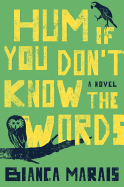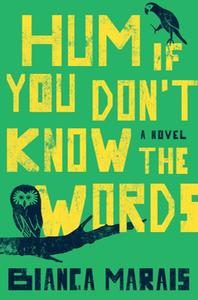
 In her breathtaking debut, Bianca Marais explores humanity's potential for compassion and understanding in a world consumed by hate and injustice. Robin Conrad is Marais's white, nine-year-old, female narrator living in 1970s South Africa. Her story alternates with that of Beauty Mbali, an educated, black Xhosa mother.
In her breathtaking debut, Bianca Marais explores humanity's potential for compassion and understanding in a world consumed by hate and injustice. Robin Conrad is Marais's white, nine-year-old, female narrator living in 1970s South Africa. Her story alternates with that of Beauty Mbali, an educated, black Xhosa mother.
Robin lives a comfortable life with her parents in Johannesburg, observing the apartheid laws that force her black maid to use separate bathroom facilities, eat from different dishes and carry a passbook to verify her work status. Meanwhile, Beauty, a widowed schoolteacher living in a small, rural village of the Transkei, struggles to raise her three children, the oldest of whom is living with her brother, Andile, and attending school in the suburb of Soweto. The two exist in their disconnected worlds until a tragedy strikes, forcing their spheres to collide.
Andile summons Beauty to Soweto when he writes that her daughter Nomsa is in danger. After two days of travel, Beauty arrives as the Soweto uprising of black students erupts in the streets. She searches desperately among the children but does not find her daughter.
In the middle of the night following the uprising, Robin and the family's maid wake to the pounding of the police on their door. A confused and terrified Robin learns her parents--who had gone out for the night--were murdered.
Robin's only remaining relative is her mother's sister, Edith, an airline hostess who spends more time traveling than home. Beauty needs documented work to stay in the city and search for her daughter. So when a mutual acquaintance covertly brings Edith and Beauty together, their work dilemmas are solved, even if not quite legally.
As Robin and Beauty's relationship grows, the young girl starts to question the belief system that has shaped her first decade of life. And Beauty opens her heart to love the damaged child who's experienced so much loss in such a short time. With humor, warmth and tenderness, Marais pulls her audience into this unlikely but heartwarming bond. The exquisiteness of Robin and Beauty's connection is enhanced by the contrast of apartheid's repulsiveness, both of which are forcefully illustrated by Marais. She details the horrific results of the uprising with vivid descriptions like "a river of blood in the streets and the children are floating in it... they are human debris swept along in a flood of destruction." Furthermore, her depictions of the disdain of whites toward blacks are emotionally painful. But while such portrayals are agonizing, Marais injects hope and light into the darkness of hate with scenes such as Robin's realization that "Almost everyone who mattered most to me was in the same room.... Black, white, homosexual, heterosexual, Christian, Jew, Englishman, Afrikaner, adult, child, man, woman: we were all there together, but somehow that eclectic jumble of labels was overwritten by the one classification that applied to every person there: 'friend.' "
Intense, powerful and moving, Hum If You Don't Know the Words is an exalting anthem of love, family and humanity. --Jen Forbus, freelancer
Shelf Talker: When a young white girl and a widowed black mother are brought together under traumatic circumstances in apartheid-era South Africa, each learns that more than blood can define family.

